Related Research Articles

Mars, the fourth planet from the Sun, has appeared as a setting in works of fiction since at least the mid-1600s. Trends in the planet's portrayal have largely been influenced by advances in planetary science. It became the most popular celestial object in fiction in the late 1800s, when it became clear that there was no life on the Moon. The predominant genre depicting Mars at the time was utopian fiction. Around the same time, the mistaken belief that there are canals on Mars emerged and made its way into fiction, popularized by Percival Lowell's speculations of an ancient civilization having constructed them. The War of the Worlds, H. G. Wells's novel about an alien invasion of Earth by sinister Martians, was published in 1897 and went on to have a major influence on the science fiction genre.

Sidney Clopton Lanier was an American musician, poet and author. He served in the Confederate States Army as a private, worked on a blockade-running ship for which he was imprisoned, taught, worked at a hotel where he gave musical performances, was a church organist, and worked as a lawyer. As a poet he sometimes used dialects. Many of his poems are written in heightened, but often archaic, American English. He became a flautist and sold poems to publications. He eventually became a professor of literature at Johns Hopkins University in Baltimore, and is known for his adaptation of musical meter to poetry. Many schools, other structures and two lakes are named for him, and he became hailed in the South as the "poet of the Confederacy". A 1972 US postage stamp honored him as an "American poet".
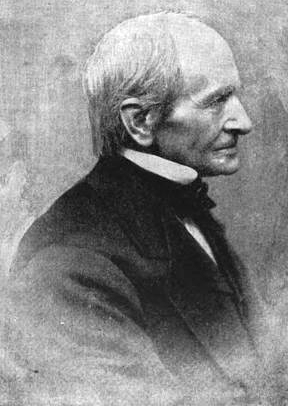
Alvan Clark, born in Ashfield, Massachusetts, was an American astronomer and telescope maker.
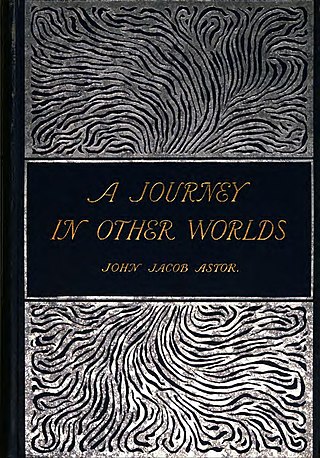
A Journey in Other Worlds: A Romance of the Future is a science fiction novel by John Jacob Astor IV, published in 1894.

Edward Singleton Holden was an American astronomer and the fifth president of the University of California.
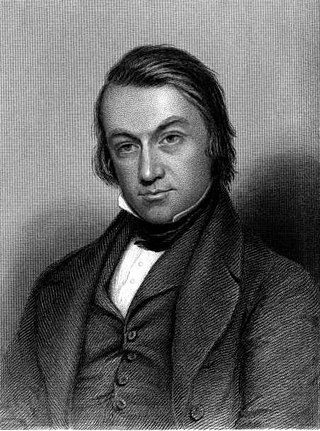
Charles Mackay was a Scottish poet, journalist, author, anthologist, novelist, and songwriter, remembered mainly for his book Extraordinary Popular Delusions and the Madness of Crowds.

Planetary romance, also known as sword and planet, is a subgenre of science fiction in which the bulk of the action consists of adventures on one or more exotic alien planets, characterized by distinctive physical and cultural backgrounds. Some planetary romances take place against the background of a future culture where travel between worlds by spaceship is commonplace; others, particularly the earliest examples of the genre, do not, and invoke flying carpets, astral projection, or other methods of getting between planets. In either case, it is the planetside adventures which are the focus of the story, not the mode of travel.
George Jacob Holyoake was an English secularist, co-operator and newspaper editor. He coined the terms secularism in 1851 and "jingoism" in 1878. He edited a secularist paper, the Reasoner, from 1846 to June 1861, and a co-operative one, The English Leader, in 1864–1867.

George William Foote was an English secularist, freethinker, republican, writer and journal editor.

Classical music of the United Kingdom is taken in this article to mean classical music in the sense elsewhere defined, of formally composed and written music of chamber, concert and church type as distinct from popular, traditional, or folk music. The term in this sense emerged in the early 19th century, not long after the United Kingdom of Great Britain and Ireland came into existence in 1801. Composed music in these islands can be traced in musical notation back to the 13th century, with earlier origins. It has never existed in isolation from European music, but has often developed in distinctively insular ways within an international framework. Inheriting the European classical forms of the 18th century, patronage and the academy and university establishment of musical performance and training in the United Kingdom during the 19th century saw a great expansion. Similar developments occurred in the other expanding states of Europe and their empires. Within this international growth the traditions of composition and performance centred in the United Kingdom, including the various cultural strands drawn from its different provinces, have continued to evolve in distinctive ways through the work of many famous composers.

Across the Zodiac: The Story of a Wrecked Record (1880) is a science fiction novel by Percy Greg, who has been credited as an originator of the sword and planet subgenre of science fiction.
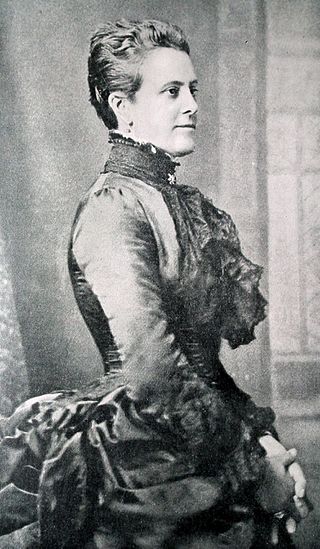
Anna Brassey, Baroness Brassey was an English traveller and writer. Her bestselling book A Voyage in the Sunbeam, our Home on the Ocean for Eleven Months (1878) describes a voyage around the world.

Lieut. Gullivar Jones: His Vacation is the last novel by Edwin Lester Arnold, combining elements of both fantasy and science fiction, first published in 1905. Its lukewarm reception led Arnold to stop writing fiction. It has since become his best-known work, and is considered important in the development of 20th century science fiction in that it is a precursor and likely inspiration to Edgar Rice Burroughs's classic A Princess of Mars (1917), which spawned the planetary romance and sword and planet genres. Ace Books reprinted Arnold's novel in paperback in 1964, retitling it Gulliver [sic] of Mars. A more recent Bison Books edition (2003) was issued as Gullivar of Mars, adapting the Ace title to Arnold's spelling.

Louise Jane Jopling was an English painter of the Victorian era, and one of the most prominent female artists of her generation.

Annals of the Twenty-Ninth Century: or, The Autobiography of the Tenth President of the World-Republic is a science fiction novel written by Andrew Blair, and published anonymously in 1874.

Daniel De Leon, alternatively spelt Daniel de León, was a Curaçaoan-American socialist newspaper editor, politician, Marxist theoretician, and trade union organizer. He is regarded as the forefather of the idea of revolutionary industrial unionism and was the leading figure in the Socialist Labor Party of America from 1890 until the time of his death. De Leon was a co-founder of the Industrial Workers of the World and much of his ideas and philosophy contributed to the creations of Socialist Labor parties across the world, including: Australia, the United Kingdom, Canada, and the Socialist Trade and Labor Alliance.
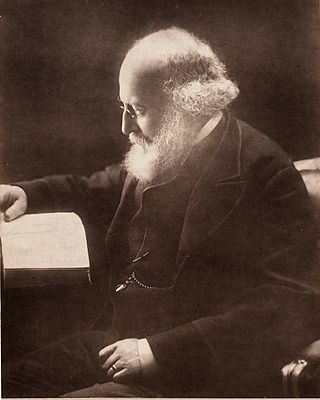
Thomas Evans Bell was an English Indian army officer and writer. He used the pseudonyms Undecimus and Indicus (1865).
A formal description of an alien language in science fiction may have been pioneered by Percy Greg's Martian language in his 1880 novel Across the Zodiac, although already the 17th century book The Man in the Moone describes the language of the Lunars, consisting "not so much of words and letters as tunes and strange sounds", which is in turn predated by other invented languages in fictional societies, e.g., in Thomas More's Utopia.

Bellona's Husband: A Romance is an 1887 science fiction novel by William James Roe, published under his pseudonym Hudor Genone. It is a tale of a utopian society on Mars where everyone ages backwards, identified by John Clute in The Encyclopedia of Science Fiction as possibly the first story to revolve around the conceit.

A Plunge into Space is an 1890 science fiction novel by Irish author Robert Cromie. It describes a voyage to Mars, where Earthlings find a utopia that is so perfect as to be boring. It received mostly positive reviews upon release and likely sold well. The second edition was published in 1891 with a preface attributed to the French science fiction author Jules Verne; modern scholars have concluded that it was likely written by somebody else. Cromie later accused fellow writer H. G. Wells of plagiarising key plot elements from the book for his 1900–1901 serial The First Men in the Moon; Wells denied ever having heard of Cromie or the book.
References
- ↑ Butterworth, L. M. Angus (1980). Lancashire Literary Worthies. W. C. Henderson and Son Ltd. p. 70. Retrieved 26 November 2014.
- ↑ Ekman, F: "The Martial Language of Percy Greg", Invented Languages Summer 2008, p. 11. Richard K. Harrison Archived 2008-09-08 at the Wayback Machine , 2008
- ↑ Greg Crater data from the International Astronomical Union
- ↑ Blue, Jennifer, "Six New Names Approved for Features on Mars" 21 June 2010